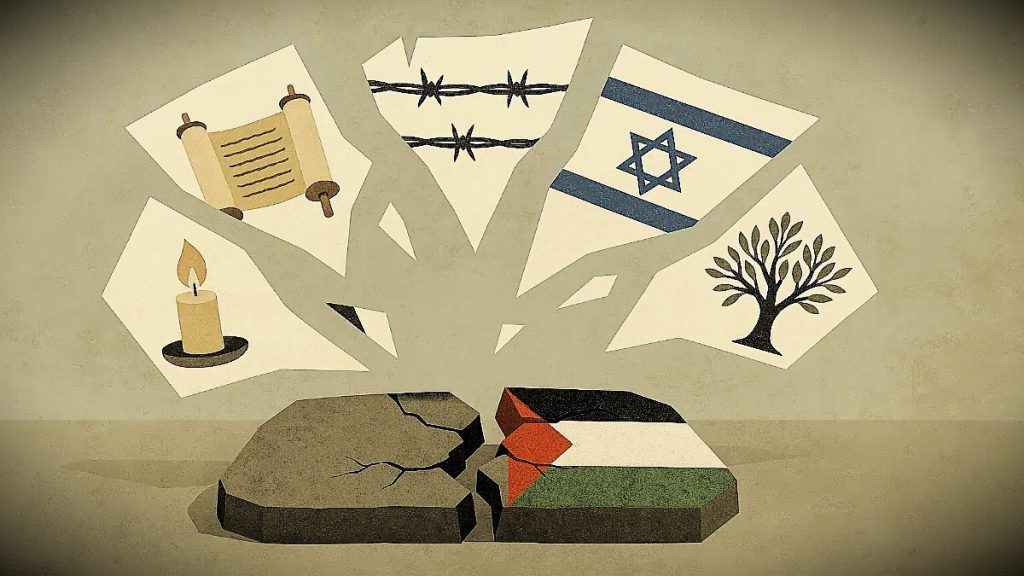Few modern political terms are as widely used and poorly understood as Zionism. For some, it represents a historic liberation movement. For others, it invokes modern military occupation. For many—especially outside the Middle East—it sits somewhere in the realm of emotional identity, often stripped from its political, religious, or historical context. This ambiguity is precisely the problem.
The Original Definition—and Its Evolution
Zionism originally referred to a 19th-century nationalist movement aimed at establishing a Jewish homeland in Palestine. Its founding father, Theodor Herzl, envisioned a modern, secular state as a refuge for Jews facing systemic persecution in Europe. This was political Zionism: a movement of physical return and national self-determination.
But over time, Zionism evolved into a layered term. Cultural Zionism emphasized Hebrew revival and Jewish art. Religious Zionism merged ancient Messianic beliefs with statehood. Revisionist Zionism took on a more militant tone, and Labor Zionism built the early kibbutzim. By the mid-20th century, Zionism was no longer one ideology—it was a spectrum.
Today, that spectrum has collapsed into confusion. The word “Zionist” can mean something as benign as cultural solidarity or as controversial as support for ethnic nationalism. It’s not just that Zionism means different things to different people—it’s that even within those groups, it splinters and contradicts itself.
The American Jewish Paradox
Ask American Jews if they identify as Zionists, and the answers will vary dramatically depending on how the question is framed.
When defined as an “emotional connection to Israel” or “a belief in the Jewish people’s right to a homeland,” the term receives broad approval—often 70% or more, according to studies from the Pew Research Center and the American Jewish Committee (AJC). But when Zionism is framed as “support for the current Israeli government,” or “the belief that Jewish lives matter more than others,” the approval percentages collapse substantially
This isn’t a case of hypocrisy—it’s a case of semantic dissonance. The same word is carrying vastly different meanings. Even well-meaning attempts to define Zionism as “simply a belief in Jewish self-determination” fall flat when one realizes that for Palestinians, Zionism has meant the forced displacement of over 700,000 people during the Nakba, the ongoing expansion of settlements, and the denial of equal rights. For them, Zionism is inseparable from settler colonialism. For many liberal Jews, that’s a tension they struggle to reconcile.
Zionism Today: A Term That Obscures More Than It Reveals
This leads to an uncomfortable but necessary question: is Zionism still a useful word?
In legal, academic, and diplomatic contexts, clarity matters. When a single word is used to mean (1) an ancient religious longing, (2) a modern political movement, (3) solidarity with an ethno-national state, and (4) militarized occupation, it becomes difficult—if not impossible—to engage in honest discourse.
It is not helpful to call someone a Zionist or anti-Zionist if neither party shares the same understanding of what the term implies. Nor is it productive to lump critiques of specific policies or war crimes under the umbrella of “anti-Zionism,” and then to further conflate that with antisemitism. This linguistic confusion allows bad actors on all sides to manipulate public perception, silence debate, and undermine legitimate criticism or advocacy.
What Comes After Zionism?
Some have proposed abandoning the term altogether in favor of more precise language: support for a two-state solution, defense of Jewish identity, critique of Israeli military policies, advocacy for Palestinian statehood, etc. These are positions that can be debated, evidenced, and understood.
Others argue that Zionism still holds value as a cultural and historical identity for Jews who feel rooted to the land of Israel—whether or not they agree with its political manifestations.
But what is increasingly clear is that in 2025, Zionism is no longer a fixed ideology. It’s a fractured signifier—one that carries deep emotional weight, but very little intellectual precision.
The Takeaway
Language should help us see things more clearly, not obscure them. Zionism, once a word of purpose and cohesion, now functions more like a Rorschach test—revealing more about the speaker than the concept itself.
It may be time, not to erase the word, but to retire it from mainstream discourse when clarity is needed. To replace it with plain, precise language that fosters real dialogue—not performative allegiance.
Because when a word can mean everything, it ultimately means nothing.
References
American Jewish attachment to Israel:
Pew Research Center. (2021, May 11). U.S. Jews’ connections with and attitudes toward Israel. Pew Research Center’s Religion & Public Life Project.
Jewish Currents. (2021, May 13). Recent polls of US Jews reflect a polarized community.
Institute for National Security Studies (INSS). (2019). The American Jewish community and Israel: Relationship under challenge.
Palestinian displacement (Nakba):
Amnesty International. (2019). The Nakba – 70+ years of dispossession.
Institute for Middle East Understanding (IMEU). (2023). Quick facts: The Palestinian Nakba.
United Nations. (n.d.). The question of Palestine. UN Department of Political and Peacebuilding Affairs.
Modern references to Nakba and present-day context:
Reuters. (2025, May 15). Palestinians mark Nakba day as fears of mass displacement grow.
Associated Press. (2025, May 14). Palestinians mark 76 years of dispossession as a potentially even larger catastrophe unfolds in Gaza
General Modern, Evolutionary, and Geological History of the Specific Region (Israel-Palestine-Jordan)
Fabled Sky Research. (2024). Israel–Palestine conflict information hub. Objectivity AI™.




